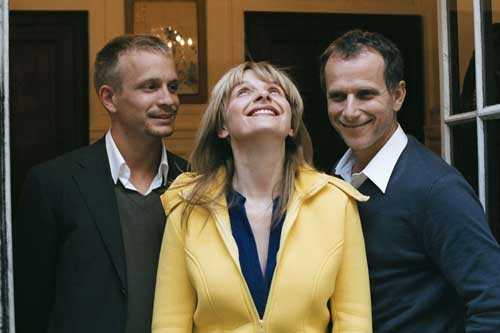Summer Hours (12A)

Your support helps us to tell the story
From reproductive rights to climate change to Big Tech, The Independent is on the ground when the story is developing. Whether it's investigating the financials of Elon Musk's pro-Trump PAC or producing our latest documentary, 'The A Word', which shines a light on the American women fighting for reproductive rights, we know how important it is to parse out the facts from the messaging.
At such a critical moment in US history, we need reporters on the ground. Your donation allows us to keep sending journalists to speak to both sides of the story.
The Independent is trusted by Americans across the entire political spectrum. And unlike many other quality news outlets, we choose not to lock Americans out of our reporting and analysis with paywalls. We believe quality journalism should be available to everyone, paid for by those who can afford it.
Your support makes all the difference.Summer Hours is the kind of film that could only have been made in France, not just because the houses are so enviable and the clothes so elegant, but because it's an uncompromising, grown-up drama in which educated, middle-class people consider a complex moral issue with barely a cross word, let alone a gun battle or a ravenous zombie. It flags towards the end, but for much of the time Olivier Assayas's film is so mature, humane and unshowy that you can almost forgive French cinema for Asterix at the Olympic Games.
Charles Berling, Juliette Binoche and Jérémie Renier star as three siblings who have to decide what to do with their rambling family home when their mother dies. Their great uncle was a well-known painter, so the question is whether they should honour him and their own heritage by keeping the estate together, or whether to sell off the house and its contents piecemeal. Berling believes they should preserve everything for their children, but Binoche and Renier both now live abroad and so for them the house, like France itself, belongs in the past. Partially funded by the Musée d'Orsay, Summer Hours debates the value of art and the purpose of museums, but it's also a touching universal story of loss, and a detailed portrait of a family that's close but not as close as it once used to be.
Join our commenting forum
Join thought-provoking conversations, follow other Independent readers and see their replies
Comments